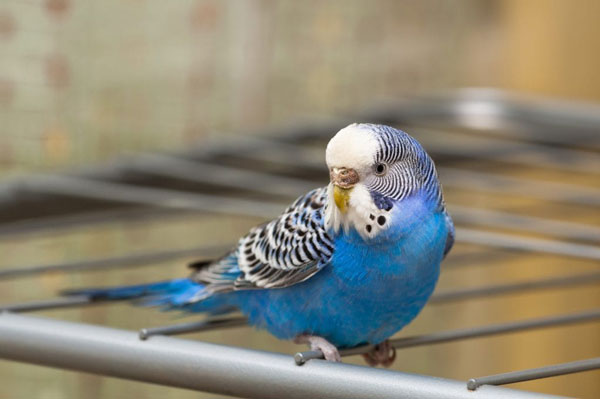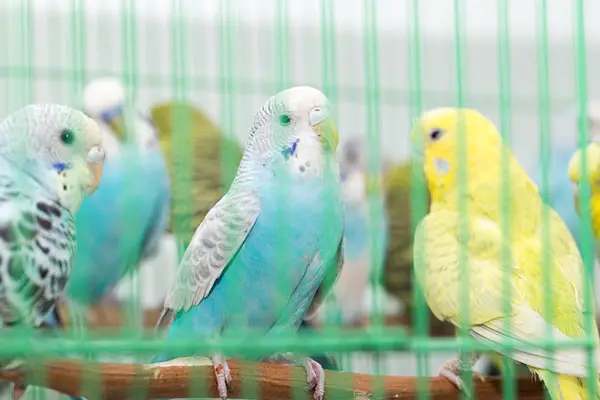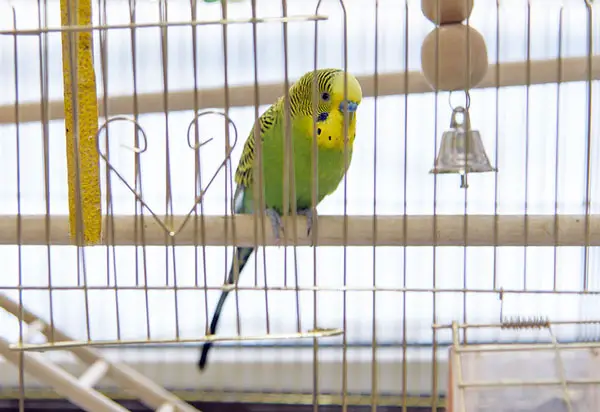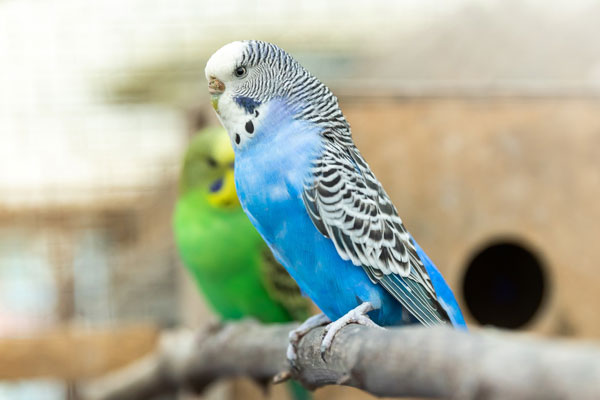Budgies’ natural habitats are grasslands, open forests, savannas, and woodlands in Australia. In these regions, the sun is pretty much, which means these birds are already used to sunlight and heat. With the AC in your house providing them warmth, you might wonder if they really need sunlight.
So, do budgies need sunlight? Yes, budgies need sunlight to make vitamin D, for hormone balance, and for their general health. During preening, the oil on the budgie preen gland is turned into vitamin D3 by sunlight. Sun also acts as a great anti-cancer agent and regulates the immune system of budgies.
Sun is of great help to budgies’ health and general growth. However, how much sun time is okay? Read below to understand this and more fascinating aspects.
Do Budgies Need Sunlight?
In Australia, where budgies originate, the general weather is characterized by warm, dry, and sunny days. These characteristics show that wild budgies get a fair amount of sunlight in their natural habitats, which the captive ones should too. Budgies like to see ultraviolet rays because it helps them unlock their eyes’ full potential.
Sunlight is crucial for digestion in budgies while vitamin D from the sun helps the body absorb calcium. Calcium is vital for the growth of strong bones and encourages the production of healthy eggs in budgies. Vitamin D3, created after ultraviolet B, reacts with vitamin D and serves as a hormone that processes calcium and phosphorus.

Researchers have also discovered that insufficient vitamin D3 could lead to poor sperm quality and sperm count. This is an effect that cuts across both humans and budgies. Remember, Vitamin D3 is more of a hormone that the budgies’ bodies generate on exposure to moderate sunlight.
How Much Sunlight is Safe?
Sunlight has both the ability to harm or improve the health of humans and animals. Even though they cannot get sunburns, it’s best to cover their cage under direct sunlight. You don’t want your budgie to suffer heat stroke because you were not careful. The facts below will help you make decisions when sunbathing your pet.

- The morning sun is ideal because its rays are weaker than the midday sun.
- 20 to 30 minutes of direct sunlight is enough for vitamin D production.
- Three days per week is enough for the bird’s health, especially in warmer months.
- Ideal outdoor temperatures for budgies are between 65-80 degrees Fahrenheit.
- Sunlight through a window is not ideal since the window glass filters all the UVB required by the bird.
- Budgies should get equal hours of light during both day and night per day.
- Using UVB bulbs to achieve the required amount of sunlight per day is equally helpful.
Also read: Female Budgie Cere Color Change
How To Safely Take Budgies Outside
Taking your bird out for sunbathing requires some security measures to be satisfied first. The pet should always have a harness on or be in its cage to prevent it from flying away. Also, the pet should not be left alone because it can be eaten or scared by predators like eagles and cats.
If in a safe environment, and the pet is left outside for some time, cover its cage. Panting and spreading wings are signs your pet is overheating and should be taken in and served fresh water immediately. Too much exposure to the sun can result in your bird having hypervitaminosis D caused by excess vitamin D.

If you’re to leave your bird sunbathing in a safe atmosphere, ensure you provide shade nearby. This should serve as a safe haven where they can shelter in case the sun is too much for them. If you leave them inside the cage, which is the safest place, create a small shelter right inside.
Choose the corner of the cage to have the shelter and cover it with a light fabric. This is the best way to sunbathe your budgies. Sometimes you may think you are doing them good, only to expose them to excess sunlight for long hours.
What Are The Signs Of Overheating In Budgies?
Providing shade to your budgie is very necessary, especially during summer. At this time, you should never take them out in the sun, unless under shade for fresh air. Whether indoors or outdoors, below are signs that the sun is too hot for your budgie:

- Looking disturbed and unhappy
- Excessively aggressive or overly passive
- Breathing with an open mouth
- Tilting the head
FAQ
Parakeet owners’ main goal is to provide the best environmental conditions for their pets. However, in the process, much uncertainty grows about what is needed by these pets and in what quantities. Below are frequently asked questions and their deeply researched answers.

Direct sunlight is needed because it provides ultraviolet B that reacts with vitamin D to make vitamin D3. Vitamin D3 is required for calcium digestion and the regulation of phosphorus absorption in birds. However, limit the bird’s direct exposure to sunlight to prevent avian gout and Nephrocalcinosis.
Budgies can benefit from getting fresh air and basking in the sun as you would. Taking the travel cage out with you is acceptable though the ideal time they should be under sunlight is 30 minutes. Also, the temperatures should be between 65- and 80 degrees Fahrenheit to be comfortable for the bird.
In most cases, budgies live in the house with their pet parents, where the environmental conditions are controllable. However, budgies should regularly be hauled outside for fresh air and natural light important for their health. In the aviary, birds should have outdoor and indoor areas where they can take shelter when they need it.
Related: How Does A Budgie Sleep?
Conclusion
Budgies benefit from direct sunlight exposure as much as humans do. This sunlight provides them with ultraviolet light, which reacts with vitamin D to make vitamin D3. The sunlight also makes the budgies more active as it stimulates their serotonin, giving them more energy.
Budgies’ sunlight time should be monitored, with 30 minutes of sunlight being enough for the bird’s growth. Also, birds should be protected when they are outside and sheltered if overheated. Natural sunlight is best in summer, although artificial light like UVB bulbs also works well during winter.







